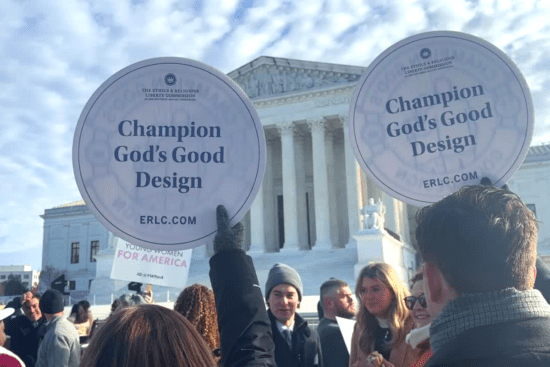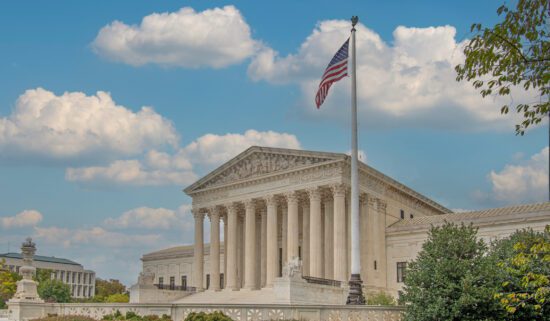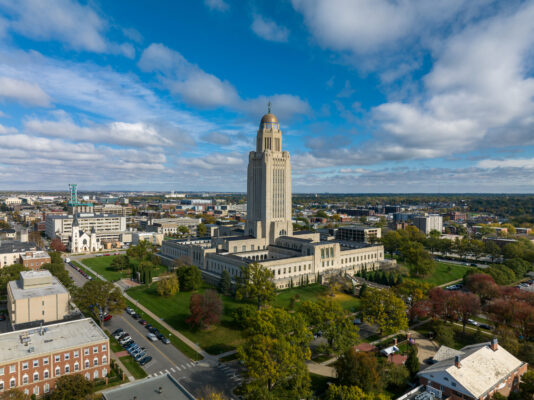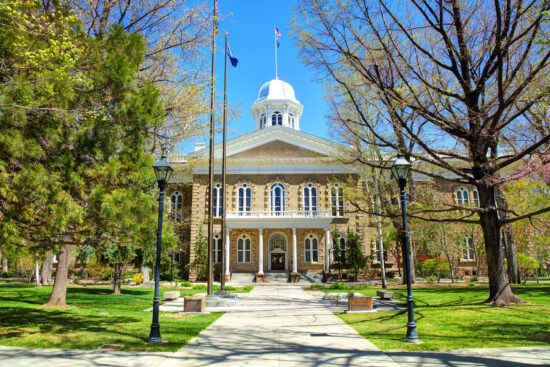Sometime this summer, the Supreme Court will issue a ruling in Dobbs v. Jackson Women’s Health Organization, one of the most monumental abortion cases of the century. As Brent Leatherwood, acting president of ERLC, has said, this case is a “once-in-a-generation opportunity” to overturn Roe.
In preparation for that decision, here are six other Supreme Court cases related to abortion you should know about.
Griswold v. Connecticut (1965)
One of the most significant cases related to abortion was not even about abortion. In 1879, Connecticut passed a law that banned the use of any drug, medical device, or other instrument that could be used for contraception. A challenge to that law came in 1961 when Estelle Griswold, the head of the state’s Planned Parenthood, opened a clinic that gave information, instruction, and medical advice to married persons as to the means of preventing conception.
When she was arrested for violating the law, Griswold appealed her case all the way to the Supreme Court.
In a 7-2 decision, the court ruled the law violated the “right to marital privacy.” Justice William O. Douglas claimed that the Bill of Right’s specific guarantees have “penumbras,” or zones, created by “emanations from these guarantees that help give them life and opinion.” Douglas found a “fundamental” and general “right to privacy” in the “spirit” of the First Amendment (free speech), Third Amendment (prohibition on the forced quartering of troops), Fourth Amendment (freedom from searches and seizures), Fifth Amendment (freedom from self-incrimination), and Ninth Amendment (other rights), as applied against the states by the 14th Amendment.
This “right to privacy” — a legal concept that is still disputed as being in the Constitution — was used as the primary basis for legalizing abortion.
In 1970, “Jane Roe” (a legal pseudonym for Norma McCorvey) filed a lawsuit against Henry Wade, the district attorney of Dallas County, Texas, challenging a Texas law making abortion illegal except by a doctor’s orders to save a woman’s life. Roe’s challenge was based on the idea that state laws were unconstitutionally vague and abridged her right of personal privacy, a right previously undiscovered until the Griswold case five years earlier.
The court ruled in a 7-2 decision that the “right to privacy” is fundamental and protects a woman’s choice whether to have an abortion. However, the court also noted that right could be balanced against the government’s interests in protecting women’s health and protecting “the potentiality of human life.”
Many legal scholars have since lamented the legal reasoning used by Justice Harry Blackmun in deciding Roe. For example, Edward Lazarus, a former clerk for Justice Blackmun, wrote that, “as a matter of constitutional interpretation and judicial method, Roe borders on the indefensible.” Similarly, law professor Laurence Tribe wrote in a 1973 Harvard law review article that, “One of the most curious things about Roe is that, behind its own verbal smokescreen, the substantive judgment on which it rests is nowhere to be found.”
In this case, “Mary Doe” argued against a Georgia law that made it a crime for a doctor to perform an abortion except when it was “based upon his best clinical judgment that an abortion is necessary.” Doe contended that the word “necessary” did not let physicians know what conduct was not allowed and that the statute was subject to many different interpretations.
The court’s opinion, which was issued on the same day as Roe, stated that a woman may obtain an abortion after viability, if necessary to protect her “health.” The court expanded the definition of “health” in way that made it almost impossible to exclude an abortion. According to the ruling, “medical judgment may be exercised in the light of all factors–physical, emotional, psychological, familial, and the woman’s age–relevant to the well-being of the patient. All these factors may relate to health.”
Justice Blackmun wrote in the Roe decision that the opinions in both abortion cases (Roe and Doe) “are to be read together.”
Planned Parenthood of Southeastern Pennsylvania v. Casey (1992)
In the late 1980s, the Pennsylvania legislature amended its abortion law to require informed consent for minors, a 24-hour waiting period prior to the procedure, and that a married woman seeking an abortion had to indicate that she notified her husband of her intention to have an abortion. The Supreme Court upheld all but one of the Pennsylvania restrictions (the marital notification provision).
However, the court also reaffirmed the Roe decision and imposed a new standard to determine the validity of laws restricting abortions. The new standard asks whether a state abortion regulation has the purpose or effect of imposing an “undue burden,” which is defined as a “substantial obstacle in the path of a woman seeking an abortion before the fetus attains viability.”
The ruling also said “we reject the trimester framework, which we do not consider to be part of the essential holding of Roe.”
June Medical Services LLC v. Russo (2020)
In this case the court was asked to consider a Louisiana state law designed to protect women from the dangerous practices of abortion clinics. The law required doctors performing abortions to have active admitting privileges at a hospital located no further than 30 miles from the location at which the abortion is performed or induced. This would ensure that women seeking an abortion could be quickly transferred in the event of medical complications. The effect of the law was to hold abortion clinics to the same standards of medical care that every other medical provider in Louisiana is required to abide.
But in a 5-4 decision, the court applied and upheld the “undue burden” precedent of Casey, as well as a precedent in Whole Woman’s Health v. Hellerstedt that struck down a similar Texas law on medical standards. The result of the ruling is that a state cannot enact reasonable public health regulations on the abortion industry if a court finds that those regulations place an “undue burden” on the ability of women to obtain abortions.
Dobbs v. Jackson Women’s Health Organization (pending)
Mississippi passed a law in 2018 called the “Gestational Age Act,” which prohibits all abortions, with few exceptions, after 15 weeks’ gestational age. The only licensed abortion facility in Mississippi, Jackson Women’s Health Organization, is challenging the law on the grounds it violates Supreme Court precedent prohibiting states from banning abortions prior to viability.
The court could decide to uphold the Mississippi restriction, and in effect change the standard set by Roe and Casey. It could also go further and overturn both, ending almost half a century of federally sanctioned killing of the unborn. Regardless of the court’s decision, it will have implications for about 40 other cases currently in the lower courts.









